 The indie short For the Safety of Theo had its world premiere at the world-famous TCL Chinese Theater as part of Dances with Films Festival, and it’s not hard to see why it was selected.
The indie short For the Safety of Theo had its world premiere at the world-famous TCL Chinese Theater as part of Dances with Films Festival, and it’s not hard to see why it was selected.
For the Safety of Theo follows a young man with obsessive compulsive disorder (OCD) who must purge himself of the consequences of a casual hook-up from the night before in order to regain his sense of stability. It takes an unflinching look on his meticulous routine as well as what happens when someone disrupts it.
The story is largely inspired by writer/director Christopher Macken’s own lived experience with OCD. Said Macken, “It’s a constant disappointment how OCD is portrayed in film and TV; Often stereotyped as ‘being organized’ or ‘keeping things tidy,’ when in fact, that barely scratches the surface. Most people don’t realize how painful living with OCD can be, not only for the person overrun by their compulsions, but for the people around them—specifically in their sexual and romantic relationships.” [continue reading…]




 In recognition of Pride Month, RespectAbility celebrates the diversity and positive impact the LGBTQ+ community adds to the United States. At the same time, we recognize that the data shows that full equity for the LGBTQ+ community in public life has yet to be achieved. This is of particular importance to the disability community, because there is tremendous intersection between the disability and LGBTQ+ communities.
In recognition of Pride Month, RespectAbility celebrates the diversity and positive impact the LGBTQ+ community adds to the United States. At the same time, we recognize that the data shows that full equity for the LGBTQ+ community in public life has yet to be achieved. This is of particular importance to the disability community, because there is tremendous intersection between the disability and LGBTQ+ communities.
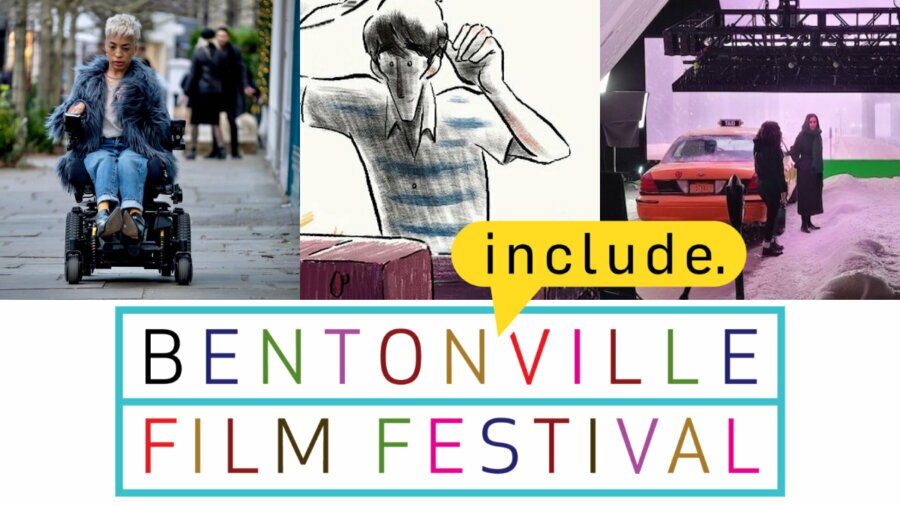

 Directed by Nicole Melillo, the fantasy short The Cab took home the Jury Award for Best Short Film at the 2023 Bentonville Film Festival. With its fresh take on mental health, the short film’s praise is well-deserved.
Directed by Nicole Melillo, the fantasy short The Cab took home the Jury Award for Best Short Film at the 2023 Bentonville Film Festival. With its fresh take on mental health, the short film’s praise is well-deserved. 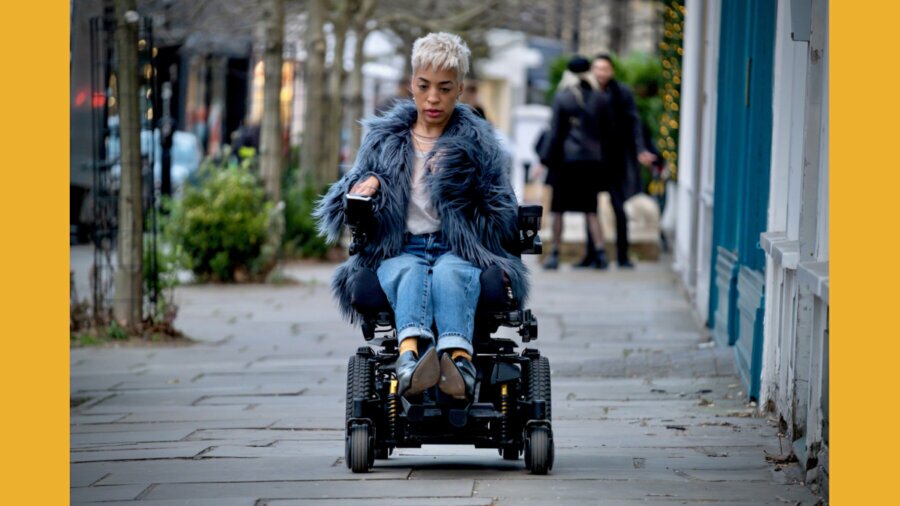
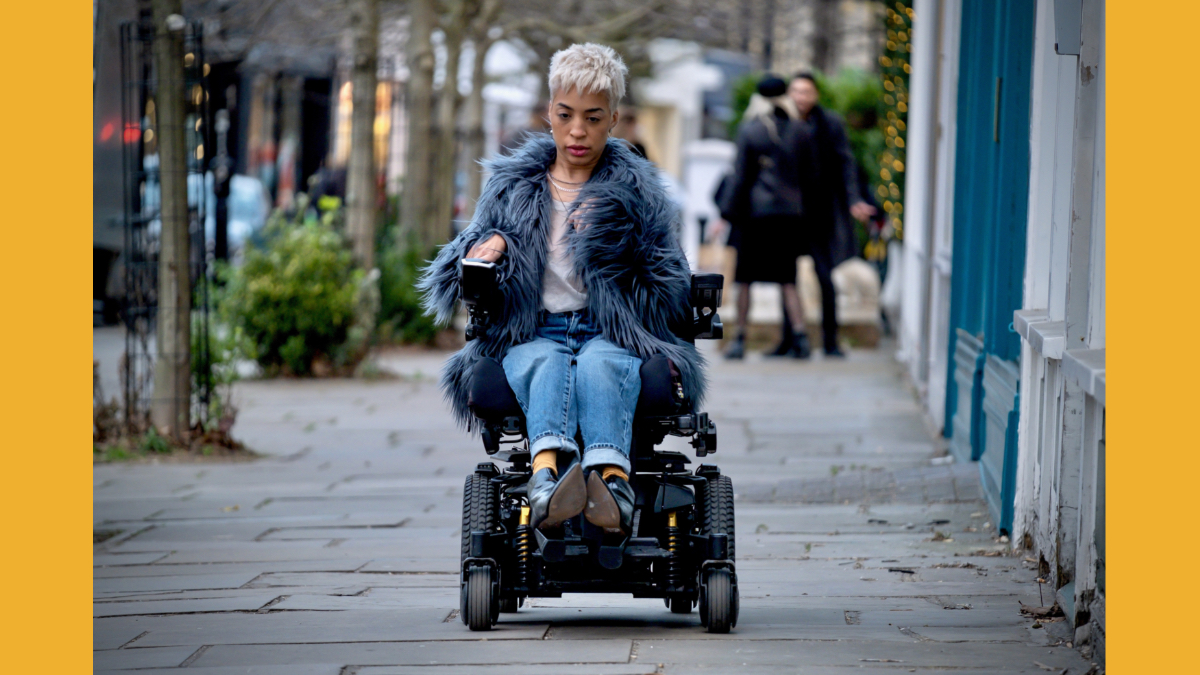 My Eyes Are Up Here is an odyssey to get the morning after pill. How could a short film be an odyssey? When a disabled woman of color needs to travel to a pharmacy for the morning after pill, the number of obstacles and quick assumptions she has to face parallels those of Odysseus. The short film was part of the 2023 Bentonville Film Festival – a festival focused on promoting underrepresented voices in entertainment.
My Eyes Are Up Here is an odyssey to get the morning after pill. How could a short film be an odyssey? When a disabled woman of color needs to travel to a pharmacy for the morning after pill, the number of obstacles and quick assumptions she has to face parallels those of Odysseus. The short film was part of the 2023 Bentonville Film Festival – a festival focused on promoting underrepresented voices in entertainment.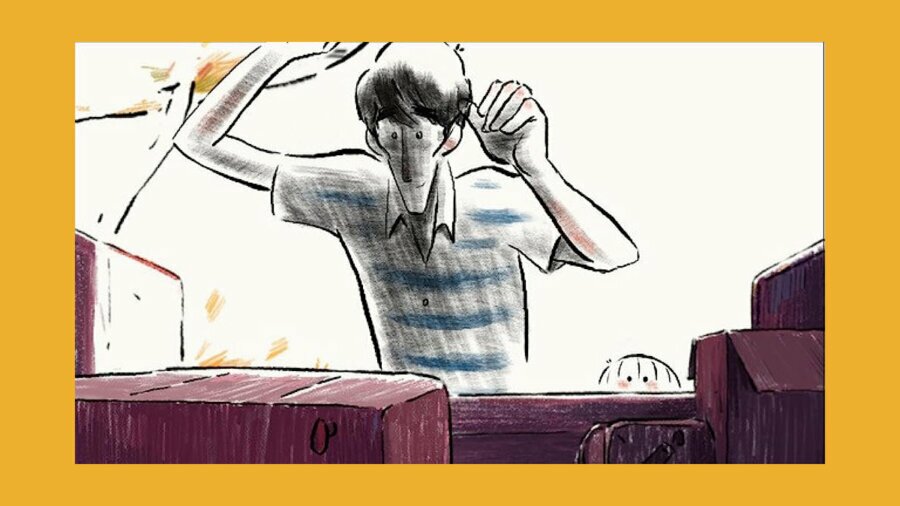
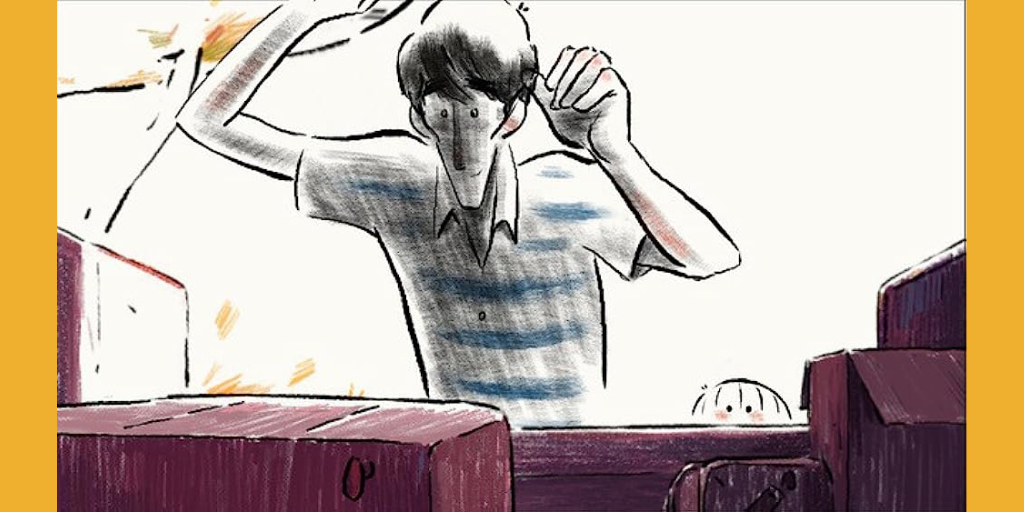 After being financed by the Gesher Multicultural Film Fund, Voyage avec mon pere, translated to A Journey With My Dad, premiered at the 2023 Bentonville Film Festival in the Competition Animation Films category.
After being financed by the Gesher Multicultural Film Fund, Voyage avec mon pere, translated to A Journey With My Dad, premiered at the 2023 Bentonville Film Festival in the Competition Animation Films category.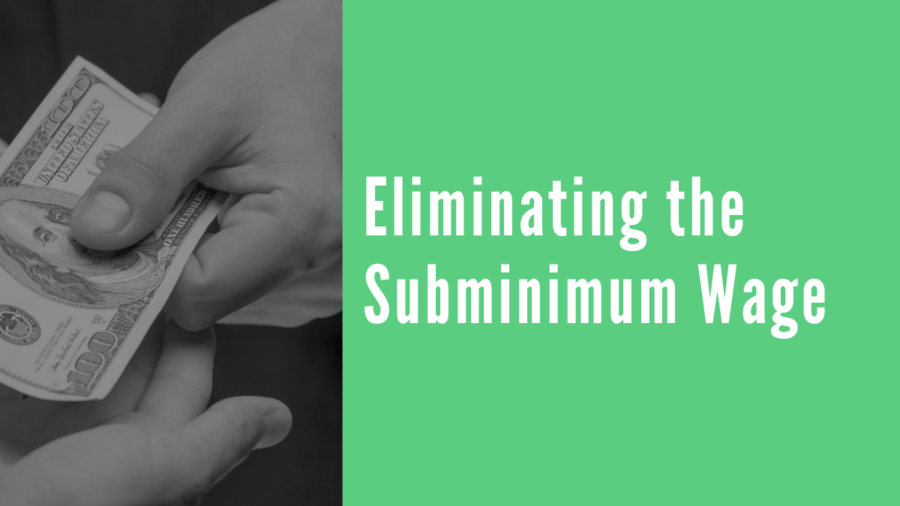
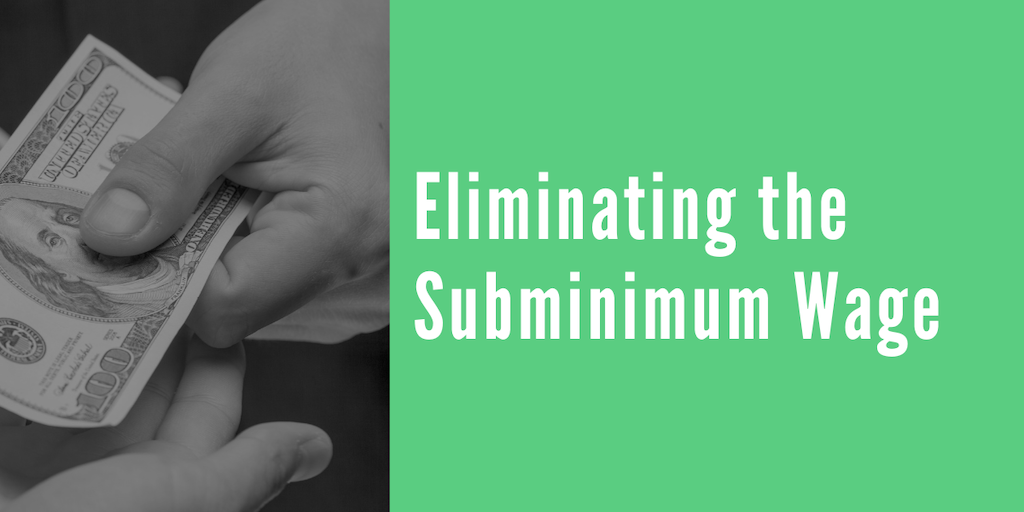 In 1938, the Fair Labor Standards Act created the federal minimum wage, but it included an exception for people with disabilities. The exception was intended to preserve employment opportunities for people, especially wounded veterans, who couldn’t keep up with “normal production” in factories. Now, 85 years later, thanks to this law, an estimated 53,000 workers in the United States earn less than minimum wage, sometimes pennies per hour, solely because they have a disability.
In 1938, the Fair Labor Standards Act created the federal minimum wage, but it included an exception for people with disabilities. The exception was intended to preserve employment opportunities for people, especially wounded veterans, who couldn’t keep up with “normal production” in factories. Now, 85 years later, thanks to this law, an estimated 53,000 workers in the United States earn less than minimum wage, sometimes pennies per hour, solely because they have a disability.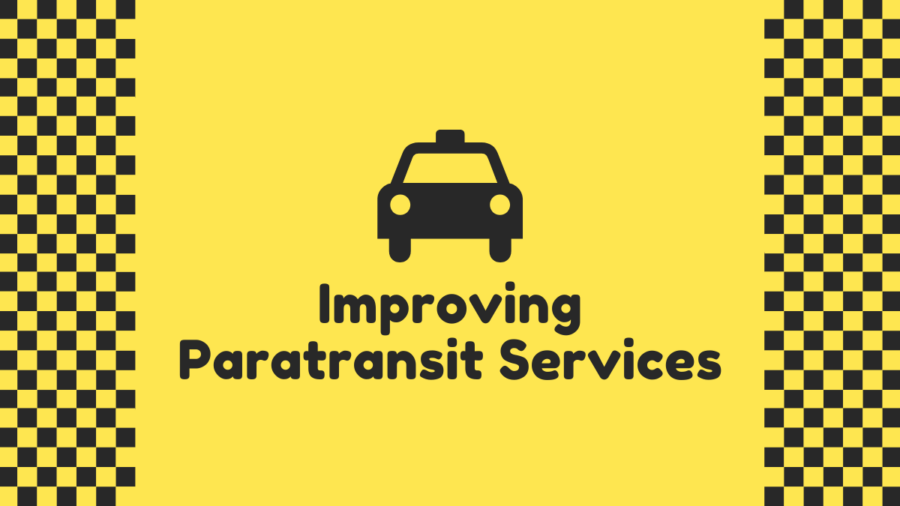
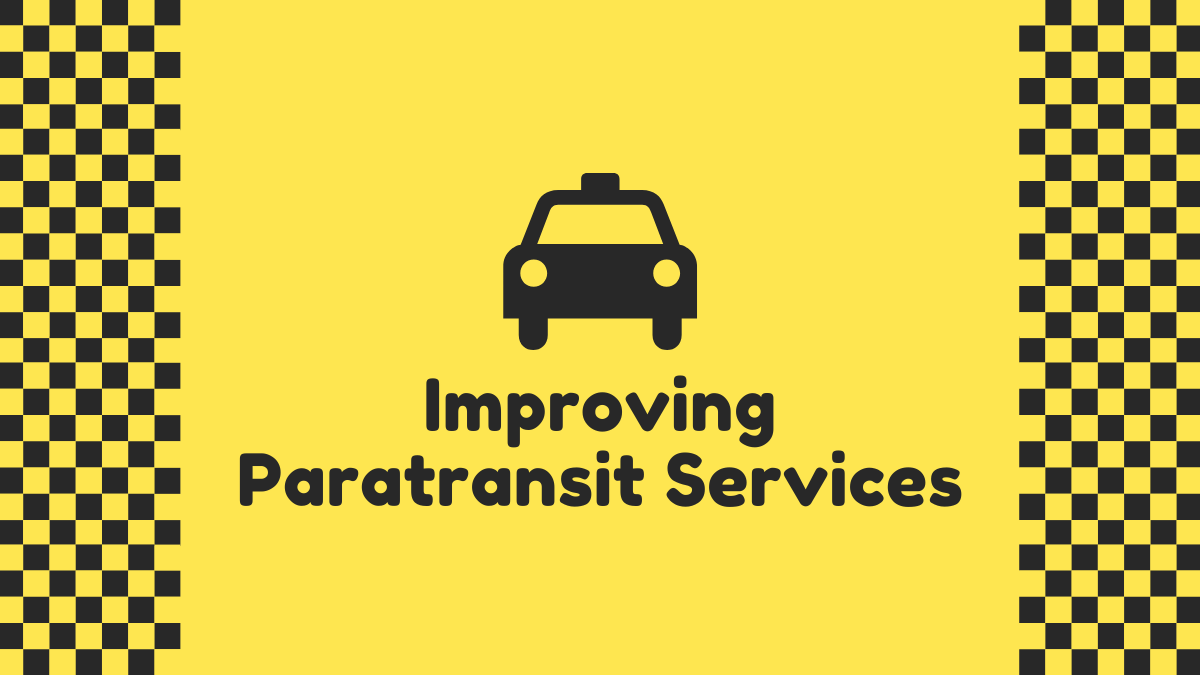 Many Americans with and without disabilities use fixed-route transportation like a city bus or commuter rail to reach their desired destination. However, people with disabilities may need additional transportation assistance to reach destinations beyond traditional public transportation routes. Public transit authorities provide paratransit services for eligible persons with disabilities if they cannot safely travel short distances to a bus stop. For instance, minibuses are used for these purposes. However, there can be issues with the timeliness of these services and the limited distance that is covered.
Many Americans with and without disabilities use fixed-route transportation like a city bus or commuter rail to reach their desired destination. However, people with disabilities may need additional transportation assistance to reach destinations beyond traditional public transportation routes. Public transit authorities provide paratransit services for eligible persons with disabilities if they cannot safely travel short distances to a bus stop. For instance, minibuses are used for these purposes. However, there can be issues with the timeliness of these services and the limited distance that is covered.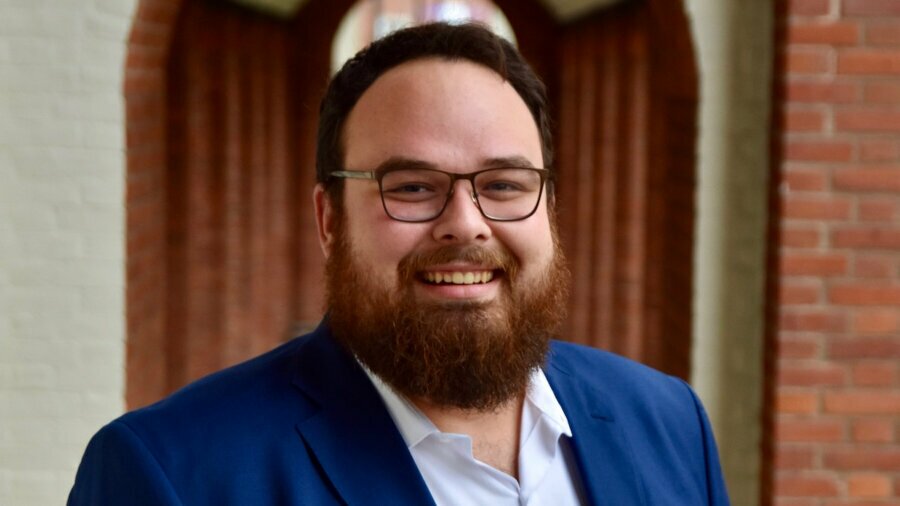
 June is Pride Month, a month of profound and unending gratitude for me. I am an openly queer and disabled clergy person. Without the radical dreaming and action from our queer and disabled ancestors, my path would not be possible.
June is Pride Month, a month of profound and unending gratitude for me. I am an openly queer and disabled clergy person. Without the radical dreaming and action from our queer and disabled ancestors, my path would not be possible.

